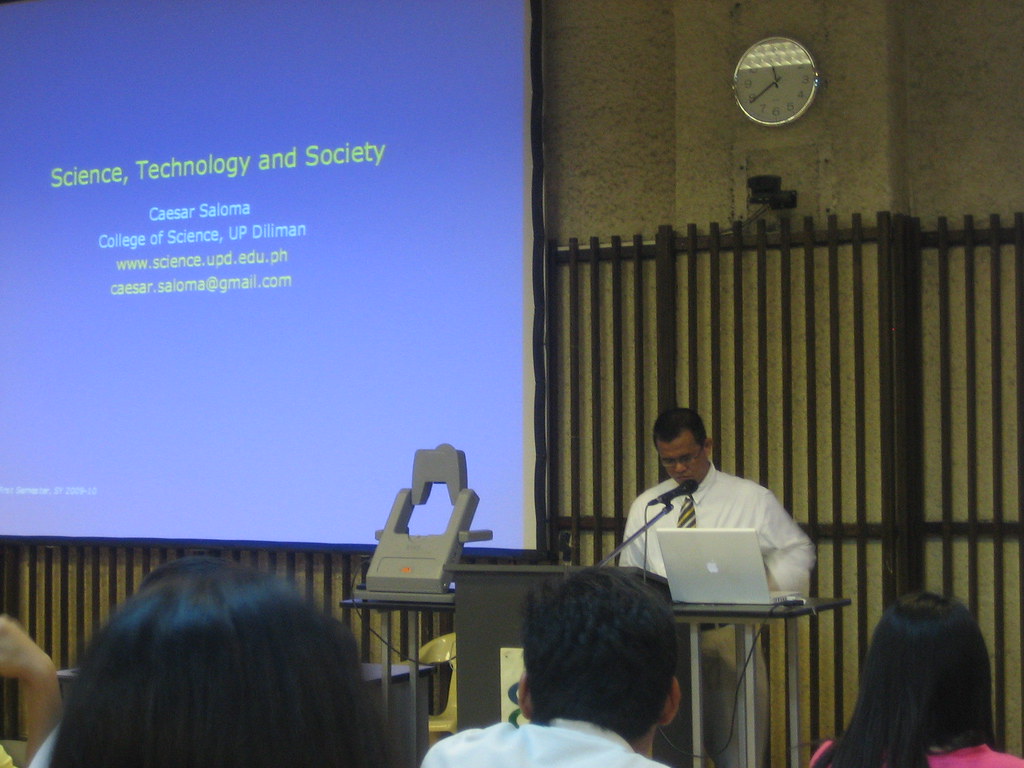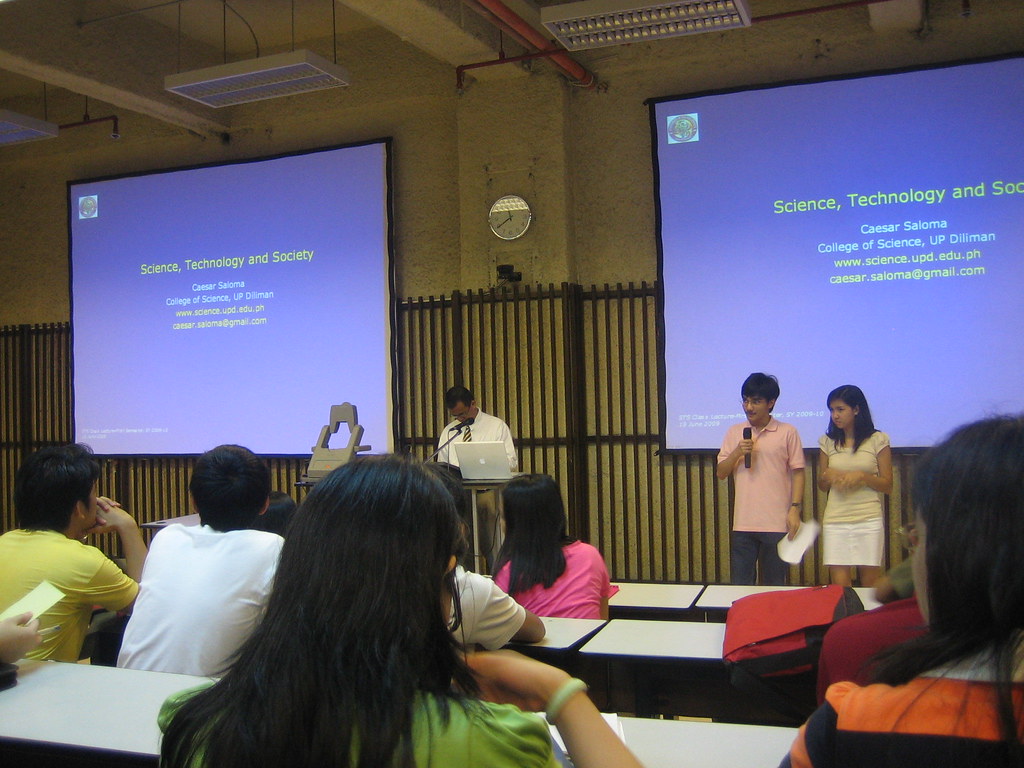One of my General Education (GE) courses this semester is my last and definitely not the least Math, Science and Technology (MST) subject I am taking - Science, Technology and Society (STS) under Fidel Nemenzo, a UP Professor of Mathematics, son of former UP President Dodong Nemenzo.
Even though we're not that far through the semester, I can already say that I will enjoy and learn a lot from this class. Our sessions are stand-alone, with different deans, professors and experts in their own fields, giving us lectures on different timely and interesting topics.

Last Friday, the Dean of the College of Science, Dr. Caesar Saloma, PhD, gave us an interesting lecture on Science, Technology and Society. He explored basic questions such as "What is Science?, What is Scientific Theory?, How do we test theories?," to the most debatable and up to date issues such as, "How does the brain work?, What's the connection between the brain and the mind?," etc.
Surely, we learned that there is a greater need to invest more in Science and Scientific infrastructure because of the study that says that there is a correlation between scientific research and the wealth of a nation.
Dean Saloma says that the greater the intangible capital, meaning the human capital, with trust in the people, society and the rule of law, the greater the chance of the nation progressing and prospering, even if it has no natural resources.
He adds that it is through investing in education, research and development, working for a stable rule of law, and a business-friendly environment that we will realize this dream.

The College of Science of the University of the Philippines is at the forefront of generating more researches, being productive, and giving back to the country, says Saloma. With the Php 1.7 Billion Science Complex project, this investment will help UP boost its competence in Science, research and development, and be able to excel in the different fields of science, and may claim to be the bulwark of research and scientific discoveries in the country.
What the university needs right now are more PhD graduates who'll go back to the university and continue their work, and at the same time, impart their skills to the young ones, who are supposedly the hope of this country.



